HOME >> BUSINESS
Ties that bind
Source:Global Times Published: 2014-7-7 8:57:56
Forum reaffirms Silk Road countries’ ongoing economic integration
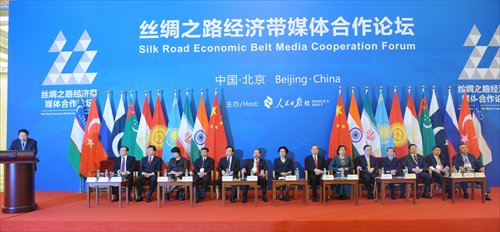
Deligates participate in the Silk Road Economic Belt Media Cooperation Forum, hosted by the People's Daily, in Beijing on Wednesday. Photo: Courtesy of the People's Daily
Nearly 100 representatives from 11 countries attended the Silk Road Economic Belt Media Cooperation Forum, hosted by the People's Daily, in Beijing on Wednesday. The attendees included officials, diplomats and journalists from countries including China, Russia, India and Turkmenistan.
During Chinese President Xi Jinping's trip to Kazakhstan in September, he shared his vision for a "Silk Road Economic Belt," which aims to boost cooperation with countries along the ancient Silk Road, particularly with the countries of Central Asia.
The economic belt will begin in Xi'an, capital of Northwest China's Shaanxi Province, before stretching west through the cities of Lanzhou, in Gansu Province, and Urumqi and Horgos in the Xinjiang Uyghur Autonomous Region. It will then run southwest from Central Asia to northern Iran before swinging west through Iraq, Syria, and Turkey. From there it will cross the Bosporus Strait and head northwest through Europe.
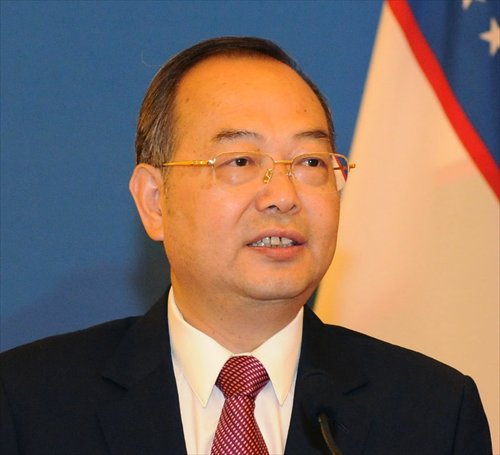
Yang Zhenwu
Yang Zhenwu
President of the People's Daily
The countries and major cities along the Silk Road Economic Belt are all at vital stages in the process of developing their economies and improving social welfare. They are all challenged by the daunting task of accelerating their economic restructuring, and all of their fates will be closely intertwined with that of the economic belt.
A crucial topic that should be considered is how China and Central Asian nations can achieve equitable economic development, building trust and creating benefits for all parties.
The media will play an important role in developing this economic belt. Journalists should report on the development of the area objectively, acting as a bridge connecting citizens of different nations, and encourage countries along the economic belt to cooperate and innovate together.
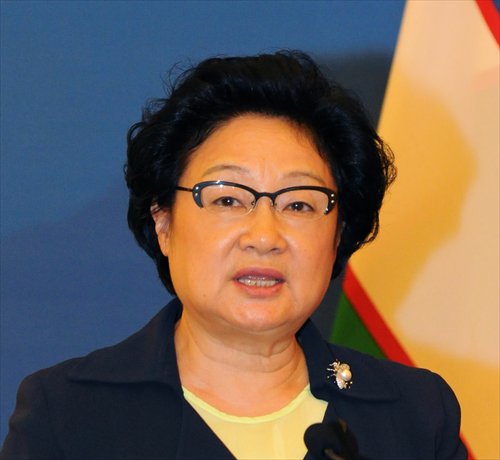
Li Haifeng
Vice-chairman of the National Committee of the Chinese People's Political Consultative Conference
The development of the Silk Road Economic Belt is proceeding smoothly. The belt has generated positive momentum for countries in that area, helping them to increase trade, communicate with each other more efficiently, and speeding up the construction of international railways connecting West China with West Europe.
As the administrative process of international trade between China and other countries along the economic belt is being simplified, the time needed for transporting products between them is shortening. These efforts will help accelerate and improve economic circulation along the belt.
The economic belt has a bright future, since Chinese nationals and citizens of other countries in the area share similar cultures, and can assist each other in developing economically. This will benefit everyone who lives along the belt, raising the global status of the entire region.
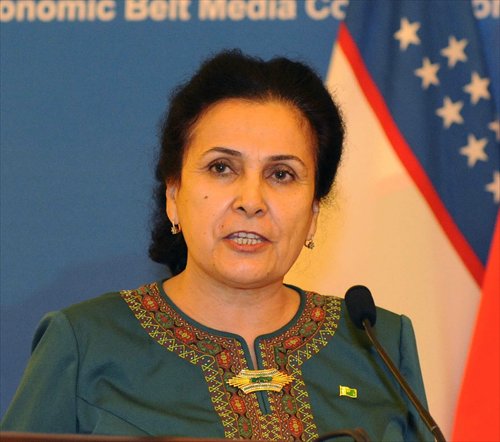
Chinar Rustamova
Chinar Rustamova
Turkmenistan's ambassador to China
Turkmenistan sees the Silk Road Economic Belt as a very important and promising project, one whose attraction lies in its potential to influence a country's overall development.
The project will help many countries in the region, including Turkmenistan, in bringing about the revival of the historical Silk Road. It will also spur continuing improvements in the quality of the economic and political cooperation among countries in the area.

Yu Haiyan
Yu HaiyanMember of the Standing Committee of the Communist Party of China (CPC) Gansu Provincial Committee; secretary of the CPC Lanzhou Committee
The Silk Road Economic Belt will help China cultivate a closer relationship with Central Asian countries, which will deepen economic ties within the Eurasian continent. This will allow the countries in the region to construct a great inland economic corridor, and strengthen China's economic and national security.
The project will also increase the potential of China's western development plan, stimulating western regions' economic and social restructuring, and bringing about balanced economic development between East and West China.
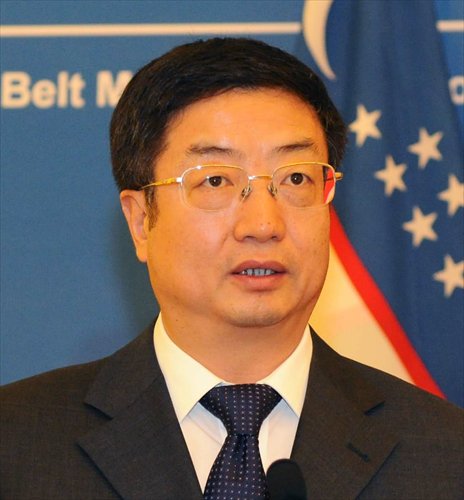
Li Xuejun
Li Xuejun
Member of the Standing Committee of the CPC, the Xinjiang Uyghur Autonomous Region; head of the publicity department, Xinjiang
Xinjiang is a vital point along the Silk Road Economic Belt, and plans to be a pioneer in developing the area's regional economy.
Cultural communication is crucial to Xinjiang's development, as is the revival of the great Silk Road. Xinjiang has put a great deal of effort into bringing its culture to the outside world, and introducing foreign culture to local residents.
Xinjiang's local media outlets have been growing rapidly over the past few years, acting as a bridge connecting Xinjiang's people with citizens of other countries. The autonomous region will endeavor to cooperate with foreign media in areas including news communication and information technology, and make Xinjiang an important cultural juncture along the economic belt.

Weng Mengyong
Weng MengyongVice-minister of the Ministry of Transport
The Ministry of Transport has taken a number of steps to increase the efficiency of transportation among countries along the Silk Road Economic Belt.
However, standards still vary among countries along the belt, many of which lack transportation infrastructure. In many cases the infrastructure they do have is not up to par technologically. This makes it difficult to implement transportation-related agreements. Cooperation in this area therefore remains low-quality.
Hence, the Ministry of Transport hopes that countries along the economic belt will encourage existing entities in charge of regional coordination to move forward with their plans, and accelerate the implementation of major projects. The ministry will continue working to make transportation more convenient and push for more cooperation in this field.
Global Times
Posted in: Insight